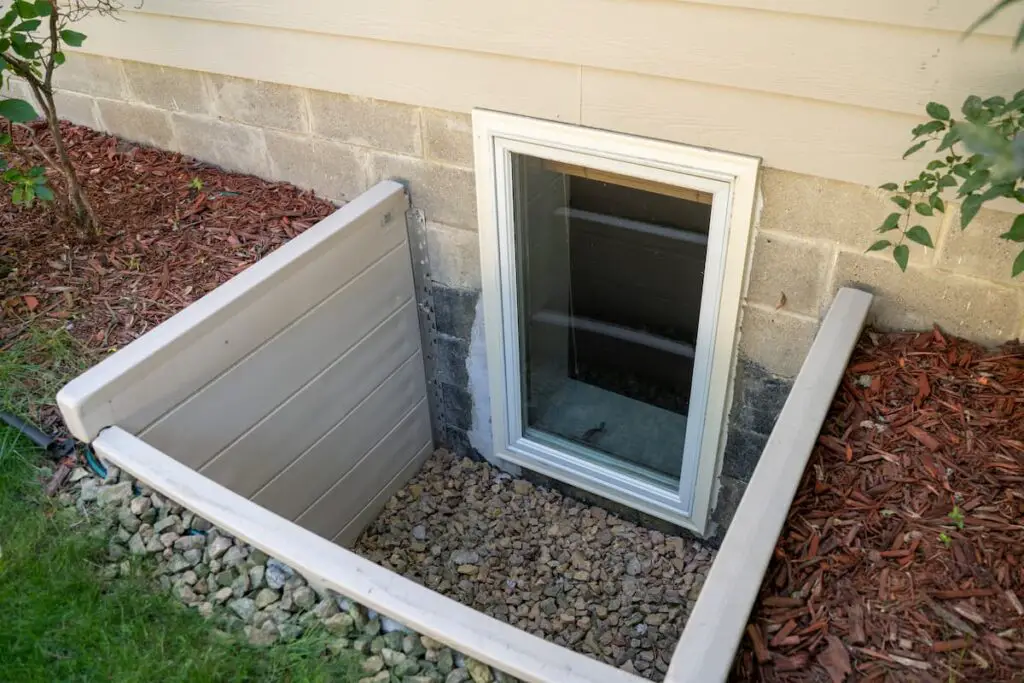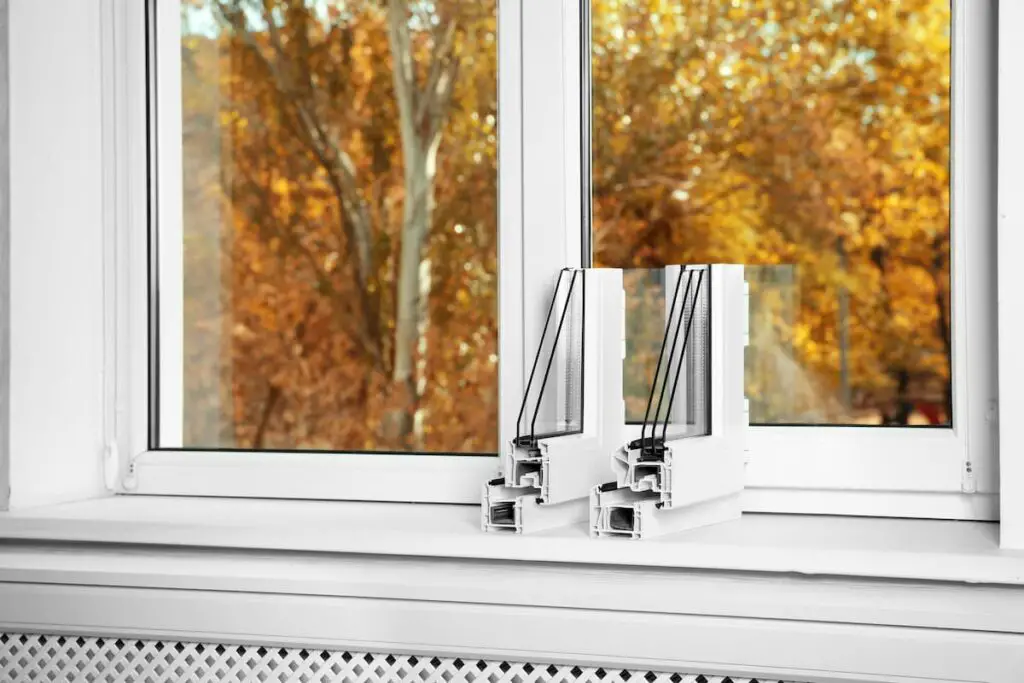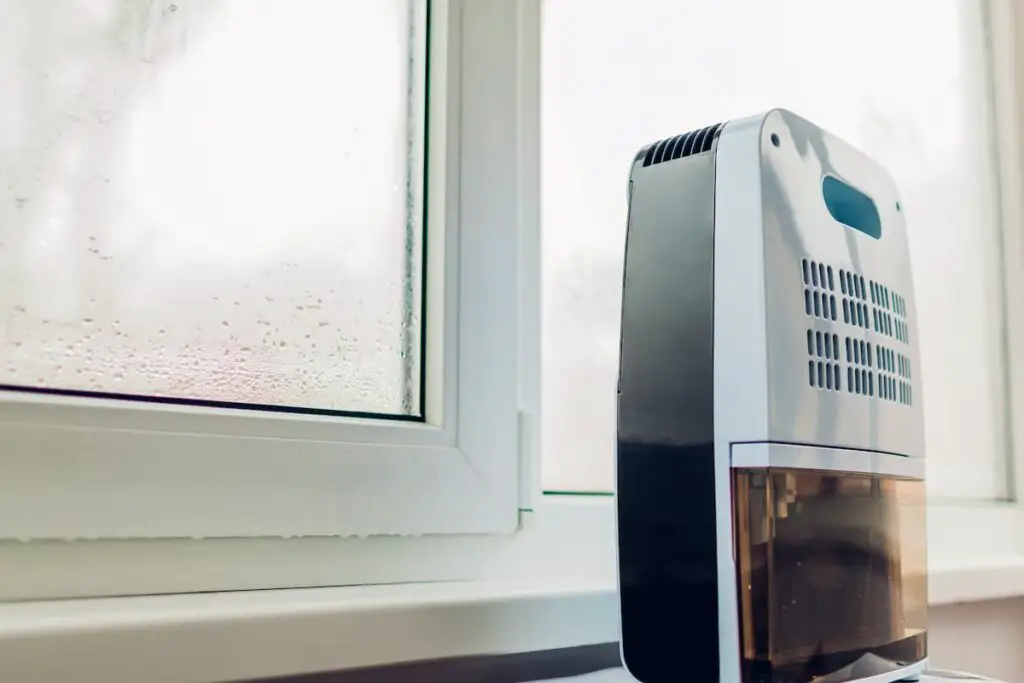As an Amazon Associate, we earn from qualifying purchases. We may also earn commissions if you purchase products from other retailers after clicking on a link from our site.
Condensation on basement windows is one factor that can lead to moisture build-up in your basement. Excess moisture is a problem for homeowners because it increases the risk of mold growth and structural damage. So how do you stop condensation on basement windows?
Here’s how to stop condensation on basement windows:
- Identify the cause of condensation.
- Replace inefficient windows.
- Improve ventilation.
- Use a dehumidifier.
- Minimize external moisture.
- Insulate your basement.
- Seal the ducts.
Condensation is a natural occurrence that can have adverse effects on your basement. This article will discuss effective ways to deal with condensation on basement windows.

1. Identify the Cause of Condensation
Condensation occurs when warm air comes into contact with a cold surface and changes to liquid water. It’s a common issue in most homes, especially in areas with high humidity like the bathroom, kitchen, laundry room, and basement. If you notice water droplets on your basement windows, this is an indication that your home’s humidity levels are above average.
So, why does the warm moisture-laden air form droplets on your glass windows?
Unlike other materials like wood and fabrics, glass is impermeable. Therefore, when the warm air starts cooling and condensing, it remains on the glass surface as tiny droplets. Afterward, these droplets run down and soak into the nearest permeable surface.
Therefore, to solve the issue, you need to find out what makes your home excessively humid.
Several factors can cause high humidity and condensation in your basement, including:
- Showering. If you have a basement bathroom and use it frequently, hot and longer showers lead to a build-up of humid air.
- Kitchen activity. Cooking, boiling water, or running the dishwasher release steam and moisture into the atmosphere. If you don’t use a kitchen fan whenever you perform the above activities, humid air will accumulate.
- Laundry. Washing your laundry with hot water releases steam into the air, increasing the humidity levels in your home.
- Water leaks. If your drainage or hot water pipes are leaking, the resulting moisture can get into your basement. This increases humidity, which in turn causes condensation on your basement windows.
- Unvented gas heaters. Natural gas heaters release steam and carbon monoxide during combustion. If they’re your only heat source, they could bump up humidity levels as well.
- Air conditioning systems. Although air conditioners help with ventilation, they can also raise the humidity levels in our homes.
2. Replace Inefficient Basement Windows
High-quality windows shouldn’t allow heat transfer between the outside and inside air. If the condensation occurs outside, that shouldn’t be a problem. However, if you notice the condensation inside, that means the windows aren’t doing their job. It also means the air seal is broken.
Double- and triple-paned windows are excellent at insulating your home. If the condensation is happening due to inefficient windows, you need to replace your old windows with well-insulated multi-paned ones.

3. Improve Ventilation
As noted earlier, condensation may indicate high humidity levels in your home. If you have long hot showers, do laundry with hot water, or cook in a fan-less room, there’ll be a consistent build-up of moisture in your home. Since the moisture can’t escape, it condenses on the cool surfaces of your basement windows.
One way to stop condensation on your basement windows is by improving ventilation. You can install a ceiling fan or portable fan to facilitate air circulation. It’s also a good idea to turn on the fans whenever you’re showering, cooking, or doing your laundry to minimize moisture build-up.
4. Use a Dehumidifier
A self-draining dehumidifier can decrease the moisture levels in your basement. Dehumidifiers are especially important during winter when humidity levels are the highest in your home. However, you don’t want to use dehumidifiers willy-nilly.
For one, dehumidifiers consume a lot of energy, so you don’t want to let it run continuously. You can invest in a portable dehumidifier that you can easily install in different rooms depending on where you need to adjust humidity levels. Another way to save energy and prevent condensation is to turn down your humidifier when moisture starts building up.

5. Minimize External Moisture
Condensation on your basement windows may also be a sign that external moisture is getting into your basement. If this moisture accumulates, it can condense on the cold windows. Consequently, high humidity leads to mold or mildew growth, posing a risk to your health.
External moisture could be due to:
- Drainage problems. If your gutters or downspouts are clogged or broken, water could leak into the basement. You need to fix these drainage issues to prevent moisture accumulation in your basement.
- Topsoil sloping towards your home’s foundation. This causes water flooding onto your foundation and seeping through your basement. You can improve your soil grading or apply gravel around the foundation to minimize water accumulation.
6. Insulate your Basement
A poorly-insulated basement facilitates the entry of cold air, especially during winter. If the sealant on your basement windows is cracked or worn out, moisture enters and builds up around the window frames. Also, the interior of your basement will become cold.
Therefore, to minimize and stop condensation, insulate your basement. Here are some ways to do so:
- Use a high-quality sealant to seal the spaces on the windows and walls.
- Air-seal the basement foundation walls to create a thermal barrier between them and the outside.
- Insulate the joist cavities on the wood frames on your basement’s foundation walls.
7. Seal the Ducts
Cracks or cavities on the ducts on your HVAC system also contribute to moisture accumulation and condensation on your basement windows. If you notice any cracks on the ducts, you need to act quickly. Use metal foil duct tape or duct mastic to seal any gaps on the ducts or joints. This will prevent any moisture leakage from your air heating and cooling system.
Final Thoughts
Basement windows are highly susceptible to dampness and mold growth. It’s crucial to establish what is causing the increased humidity in your basement, so you can implement the appropriate measures to minimize condensation on your basement windows.
